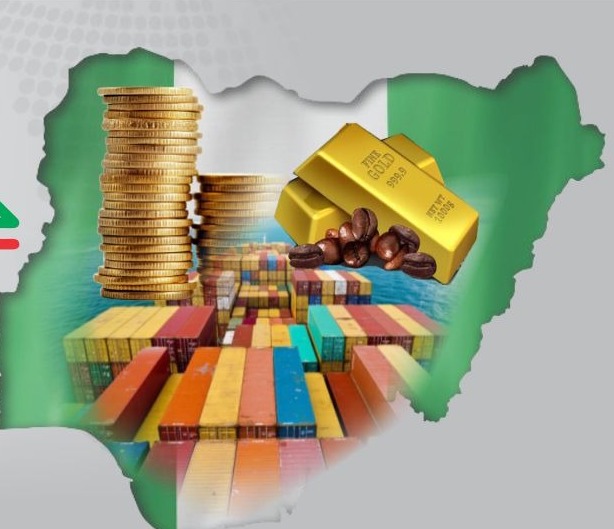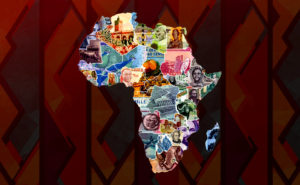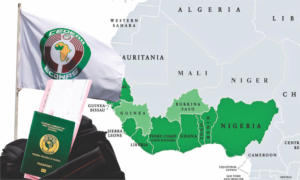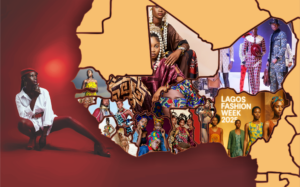Assessing a Climb Back For Nigeria to Apex from Abyss in Africa – by Collins Nweke

Assessing a Climb Back For Nigeria to Apex from Abyss in Africa – by Collins Nweke
A little over a decade ago, Nigeria stood tall as the economic crown jewel of Africa. In 2014, a rebasing of its Gross Domestic Product (GDP) catapulted the country to the top of the continental economic league. It surpassed South Africa with a GDP of over $510 billion. It was a moment of optimism.
Optimism is both symbolic and a reality. Nigeria could not be Africa’s most populous nation without also being it’s wealthiest. However, today, in a dramatic reversal of fortunes, Nigeria is projected to be not the second or third-largest economy in Africa, but in an abysmally low position, ranking fourth by 2025. It lines up behind South Africa, Egypt, and Algeria.
This precipitous decline is not merely a statistical reshuffle. It is a sobering indicator of missed opportunities, economic mismanagement, and an over-dependence on a volatile mono-product economy. Yet, it is both a challenge and a rallying cry, to rethink Nigeria’s economic destiny. Because if any African nation has the latent strength to reclaim the top spot, it is Nigeria. But it must now earn the spot.
The Anatomy of a Decline
How did Nigeria get here? Several intersecting factors have contributed to its decline from an economic pole position. Of these factors, four have acted as daggers on the navel.
First is currency devaluation and macroeconomic instability. The consistent depreciation of the Naira has been a major driver of Nigeria’s shrinking GDP when measured in dollar terms. Policies aimed at “managing” the exchange rate too often delay necessary reforms, ultimately weakening investor confidence and driving capital flight.
Second is Oil Dependency. Nigeria’s oil sector accounts for over 90% of the country’s export earnings and nearly half of its government revenue. This vulnerability to global oil price shocks has proven catastrophic during periods of price slump. Other resource-rich nations diversified long ago, while successive governments of Nigeria have merely flirted with the idea.
As devastating as currency devaluation and oil dependency is structural and institutional weaknesses. From persistent electricity blackouts and underfunded infrastructure to regulatory bottlenecks and corruption, Nigeria’s business environment is plagued by structural weaknesses that have stifled both domestic and foreign investment.
Investment Financial products
Finally, and possibly the most tragic contributor to Nigeria’s decline in economic ranking, is policy inconsistency. Investors prize stability and predictability. Nigeria has offered neither. Shifting trade policies, forex restrictions, and sudden tax adjustments have kept many serious investors on the sidelines. Make no mistakes about it. Investors have not entirely abandoned Nigeria. But those who engage do so for short-term investments.
The Case for a Comeback
Despite its setbacks, Nigeria remains uniquely positioned to reclaim its economic primacy. Here are three compelling reasons:
- Nigeria’s population is an asset. Rather than pay heed to the narrative of Nigeria’s population as a liability, its demographic dividend must be leveraged. It boasts the largest and youngest population in Africa. With over 230 million people, some 60 per cent of whom are under 30, the economy has a consumer base and labour force unmatched on the continent.
- Nigeria’s abundant natural resource will matter more than oil in its resurgence narrative. Beyond oil, Nigeria is rich in gas, minerals, and arable land. With smart investments in value addition and technology, the extractives and agriculture sectors could become major engines of growth. Signs of this has appeared in 2024 when for the first time cocoa overtook oil in foreign revenue for the country.
- The Nigerian Diaspora and a vibrant private sector hold out hope for Nigeria’s resurgence. The diaspora contributes over $20 billion annually in remittances. This is a source of soft capital that could be used for national development. Meanwhile, from fintech to film, Nigeria’s private sector, particularly in informal and creative industries, is remarkably resilient.
A Comeback for Nigeria will not fall on its laps…
For Nigeria to reclaim its top spot, it must be intentional in resetting some of its economic buttons. Its fingers need not be on the speed dial, but consistency is an omissible currency.
- Anchor the Economy on Production, Not Extraction: A strategic shift is needed from extractive economics to value-added manufacturing and service exports. This means investing in agro-processing, tech-enabled logistics, pharmaceuticals, and green energy. The African Continental Free Trade Area (AfCFTA) provides an ideal launchpad for Nigeria to take the lead in intra-African trade. The recent opening of the air traffic corridor by Nigeria to Kenya, Uganda, and South Africa is proof of purposefulness.
- Reform the Foreign Exchange Market: A transparent and unified exchange rate regime is not optional. It is foundational. While the current administration has shown signs of correcting past distortions, reform must go beyond currency floatation to include export incentives and targeted capital inflows.
- Unlock Infrastructure and Energy: No economy can grow in the dark. Power reforms must be bold and honest. The sector must be freed from regulatory and political shackles and incentivized through risk guarantees and blended financing.
- Embrace Technology and Human Capital: The future is digital. Nigeria must invest in education with an eye on emerging industries: AI, renewable energy, fintech, and agritech. This will require aligning curricula with industry needs, promoting technical and vocational education, and closing the gender gap in innovation.
- Institutional Reform and Political Will: Fighting corruption is not a moral crusade. It is an economic imperative. Institutions must work. The rule of law must prevail. Investors need to believe that contracts will be honoured, taxes will not suddenly change, and bureaucrats will not become bottlenecks.
Investment Financial products
The world is not waiting for Nigeria to get its act together. Ethiopia is rising. Kenya is innovating. Egypt is building. Algeria is stabilising. South Africa, despite its challenges, is undergoing reform. Nigeria must not mistake its size for invincibility.
This is a country that has produced Nobel laureates, tech unicorns, Olympic champions, and literary icons. Its people are not the problem. Outgoing President of the African Development Bank, Dr. Akinwunmi Adesina, has proven that Nigerians are made of the right stuff. Dr. Ngozi Okonjo-Iweala is proving the same in the World Trade Organisation, and many others like them. Nigeria’s governance and economic choices are the problem. With unobstructed vision and consistent policy, Nigeria can re-engineer itself for growth. Not just to climb economic rankings, but to deliver prosperity, dignity, and opportunity to its citizens.
The path back to the top is challenging, but it is possible. Nigeria rising, not again but better, begins with willpower and ends with results.
Source: Collins Nweke









